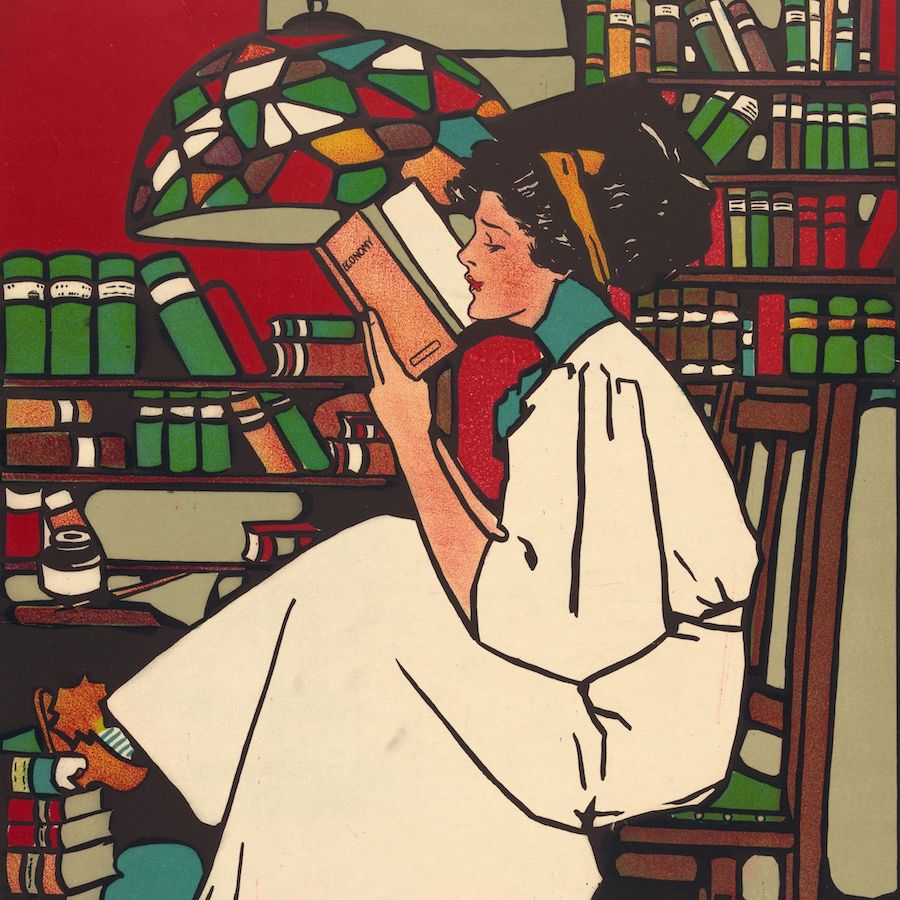This post was first published over on Blank Page in February 2021.
Several years ago, I attended a talk by the Canadian poet Erín Moure. She talked about poetry and translation and writing. It was a talk so full of brilliant insights that, as I jotted things down in my notebook, I struggled to keep up. But after the talk, as I looked back at my hastily scribbled notes, one line stood out:
Books are emigrants. They belong where they end up. — Erín Moure
In a couple of short sentences, Moure managed to conjure something of the essence of why books matter to me, something about the solitariness and freedom this emigrant’s journey implies.
Much of the reading and writing that takes place in the world is conversation by other means. We are the same social primates our ancestors once were, sitting around the camp-fire, exchanging news, gossip and ideas. On social media, in email, by letter (back in the day when people still wrote letters), or writing articles like this one, the act of writing is often tangled up with a hunger for conversation and connection. Writing is a stage in a mutual, shared, back-and-forth exploration of the world. And so if we don’t get something back from what we write—a comment, a like, an upvote, a reply to the letter we sent—we feel as if something has gone wrong.
But books aren’t like this. Once a book has left home on its emigrant’s journey, it is its own entity. If you are a writer, it is ultimately none of your business where your book ends up.
There is something liberating in this. You may be answerable to others for what you have written. People may hold you to account, and you will have to deal with this. But you don’t have any say over how people will read your book, or where it belongs in the world. It belongs where it ends up belonging, not where you want it to belong. And you have to live with that.
This is particularly true of real, physical books. Physical books are things in the same way that rocks and stones (or the trees they once were) are things. And they live the same kinds of unpredictable lives that things lead.
Maybe a copy of the book you have laboured over for years will make its way to a bookstore on the other side of the world. Maybe somebody will find a copy lying on a park bench, part-drenched by rain. Maybe a reader, disappointed with what you have written, will leave the book on a train, and someone else will pick it up. Maybe, if the book is lucky, it will end up in a library of salvaged books run by Turkish sanitation workers.
But whatever happens to the book, its fate is its own. And this is liberating not just for you as a writer, but also for your readers. When a reader picks up your book, they don’t enter into a conversation. They are not bound by the mutual obligations and responsibilities that conversation implies. They are free to make of your book what they want. They can read it from start to finish or from finish to start. They can tear out pages as they go to keep track of their progress. They can use pencils, pens and highlighters to make notes. They can write angry notes in the margin, cursing you for your stupidity. They can take the book and use it to prop up an unstable table, where it will spend the next ten years doing good, honest service. They can burn it to keep warm in winter. And none of this is any business of yours.
Once, years after my first novel came out, a friend confessed he’d never read it. He’d intended to read it, he said. But he left it on the coffee table where his dog ate half of it, so he threw the other half away.
What upset me most about this story was the fact that the dog only ate half (was the book really that unpalatable?). But ultimately, I knew it was the dog’s own choice.
This, in the end, is why I love books. Because, in a world of conversation, books are a way of stepping back from the camp-fire where together we exchange stories, news and gossip. They are a way of withdrawing into solitude, so we can enter into other worlds, other ideas, other dreams, free of any obligation to the author.
And if you are a writer, what better reasons for writing are there than these? That your book might be a gift of solitude to a reader you will never meet? That your reader might spend a fulfilling afternoon going through with a red marker, scrawling angry notes in the margin about all the places you are wrong? That your book might help somebody fix their problem with a wobbly table? Or that this strange emigrant you once knew, as it makes its way through the world, might one day provide nourishment for a passing dog?



